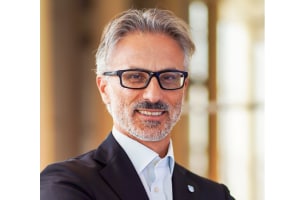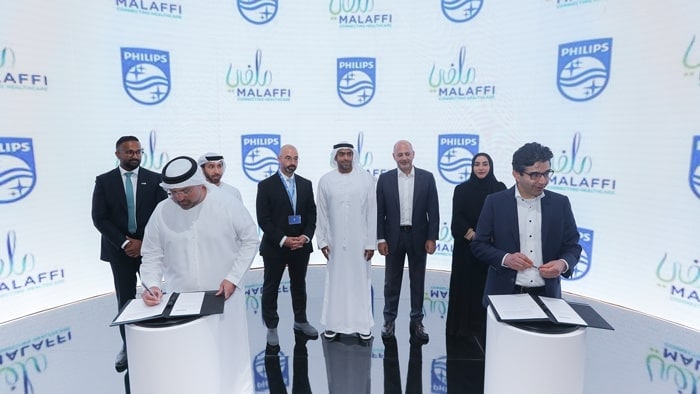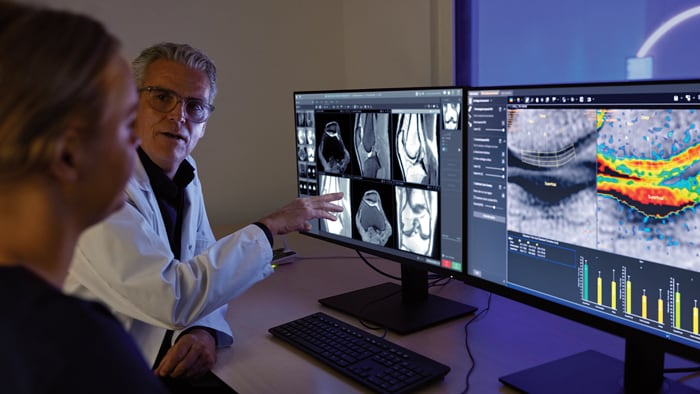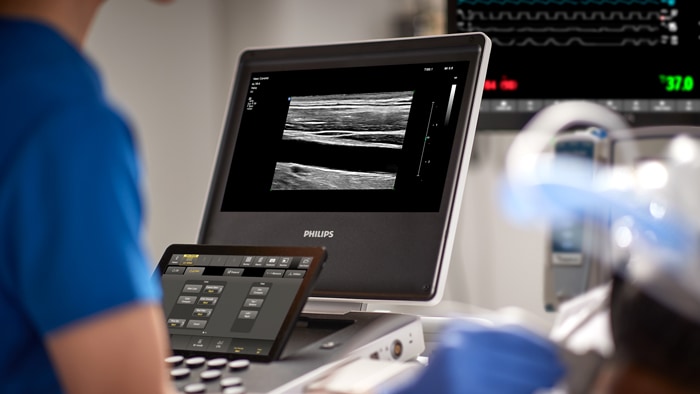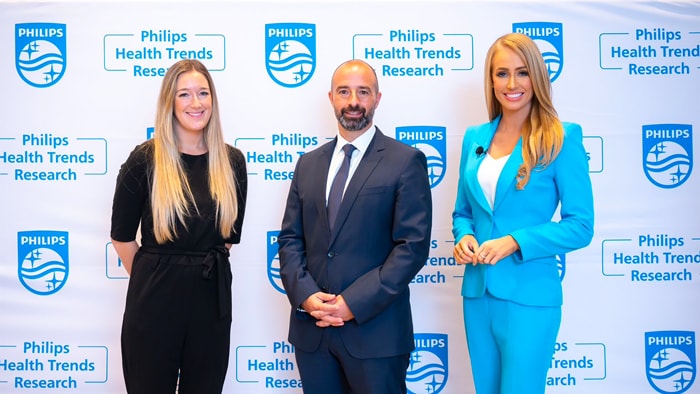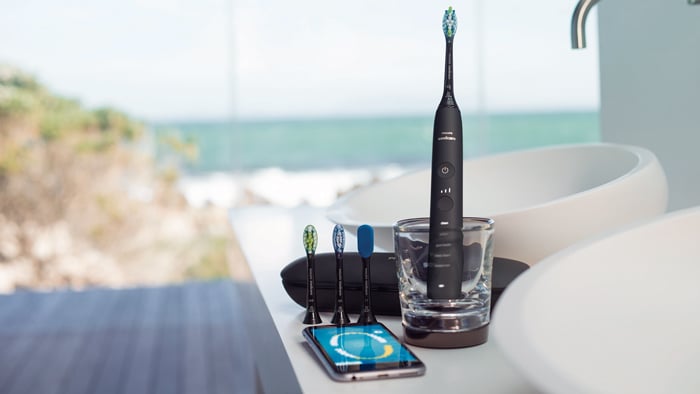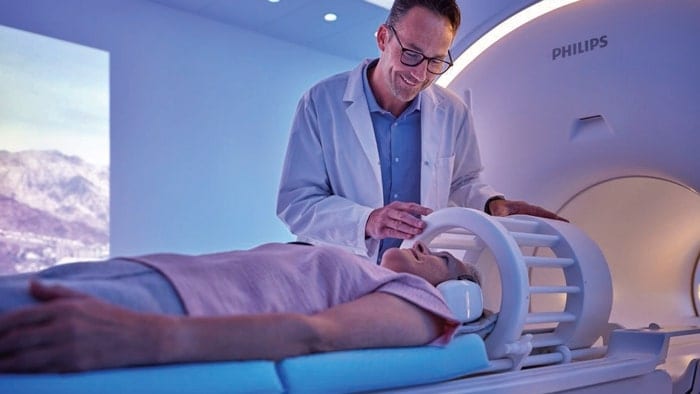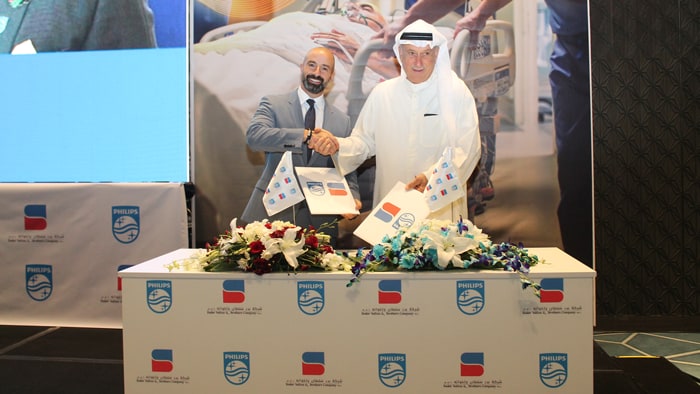Climate resilience is at the core of healthcare for all
According to the World Health Organization (WHO), the science is clear; human health is strongly determined by environmental health. Biodiversity, water services, and land degradation each has an impact on public health, but what many don’t realize is the effect of healthcare on climate change[1]. The world’s healthcare systems account for over 4% of global CO₂ emissions - more than that from the aviation or shipping sectors.[2]
As a global leader in healthcare technology, Philips owns our role in this two-pronged priority; first by expanding access to care to address the health component and growing healthcare needs of our population, and equally, and in parallel, by helping to drive down the healthcare sector’s impact on our planet.
The capacity of healthcare systems to manage and protect population health To limit the vulnerability of health infrastructure, healthcare systems increasingly need to be strengthened so that they continue to be efficient and responsive to improve population health in an unstable and changing climate. A prime example of this is solutions that improve people’s health and well-being, while respecting the planet. Research indicates that the resource savings unlocked by digital information and communication technology for instance, outweigh the increase in the footprint caused by the rollout of that technology. Therefore, the shift to digitalization presents the opportunity to improve the sector’s environmental footprint by enabling dematerialization and optimized use of resources, while driving access to care to protect population health. It enables remote interactions between caregivers and patients, and among caregivers. This could potentially reduce the need for physical healthcare facilities, in turn lowering consumption of materials and energy, as well as travel. Last but not least, digital technology enables the use of generic hardware such as tablets and cellphones, which means less need to produce dedicated devices, as with our portable ultrasound solution, Lumify. But more so, the industry needs to actively counteract our impact on the environment to safeguard future health capacity while restoring the foundations for healthy lives and sustainable livelihoods. For instance, while Philips is carbon neutral in its operations as of 2020, our role doesn’t stop there. We have now broadened our climate target to have an environmental impact beyond our own operations; we plan to increase the combined impact we make, working with our customers and across our supply chain, over the next five years. Through a collaborative approach and proactive ways of working in the supply chain, in 2020 we already improved the year-on-year sustainability performance of suppliers that entered the program in 2019 by 36%. In addition, we continue with our carbon compensation programs that help improve biodiversity for additional health benefits. We have been working to reduce our CO2 emissions by rethinking business models, driving the adoption of circular practices, and applying EcoDesign principles to all our products, in turn putting more focus on the energy efficiency of our solutions. Impact of climate change on human health Climate change has a direct impact on human health through injuries or illness from extreme weather events; illness related to air quality or as a result of food systems, water, and sanitation .
The mechanism is in place to address these problems; in 2015, all United Nations (UN) member states committed to achieving universal health coverage (UHC) by 2030. In support of this goal, we have committed to UN Sustainable Development Goal 3 (Ensure healthy lives and promote wellbeing for all at all ages). This goal serves as the North Star towards the betterment of millions of lives around the world: a clear compass and a shared agenda which looks at people-focused healthcare needs. At the same time we are also committed to Sustainable Development Goals 12 (Ensure sustainable consumption and production patterns) and 13 (Take urgent action to combat climate change and its impacts). The drive for affordable and effective healthcare delivery is fueling a shift from fee- to value-based care – a system that aims to expand access to care and improve patient outcomes at lower cost. At Philips we believe that technology is foundational to value-based care, whether it be an informatics infrastructure that allows us to actually measure value by systematically tracking outcomes and costs, or telehealth platforms that bring care closer to the patient – providing access where care is needed. But digital and technological innovation on its own will not be enough to achieve UHC by 2030. To reduce climate change risks, health care needs to be resilient. It will take responsible leadership, a collaborative approach, new business models and financing solutions, underpinned by strong primary care systems and high-quality health services to improve care for a better, more sustainable world. That is why Philips, as a purpose-driven company, takes a fully integrated approach to doing business sustainably, to improve people’s health and well-being through meaningful innovation and realise our purpose to positively impact 2 billion lives per year by 2025. [1] WHO: Monitoring-science-and-evidence-on-climate-change-and-health [2] Health Care Without Harm (2019). Healthcare’s climate footprint: How the health sector contributes to the global climate crisis and opportunities for action (p.22). https://noharm-global.org/documents/health-care-climate-footprint-report [3] Accenture #SMARTer2030. (2015). ICT Solutions for 21st Century Challenges
Topics
Author
